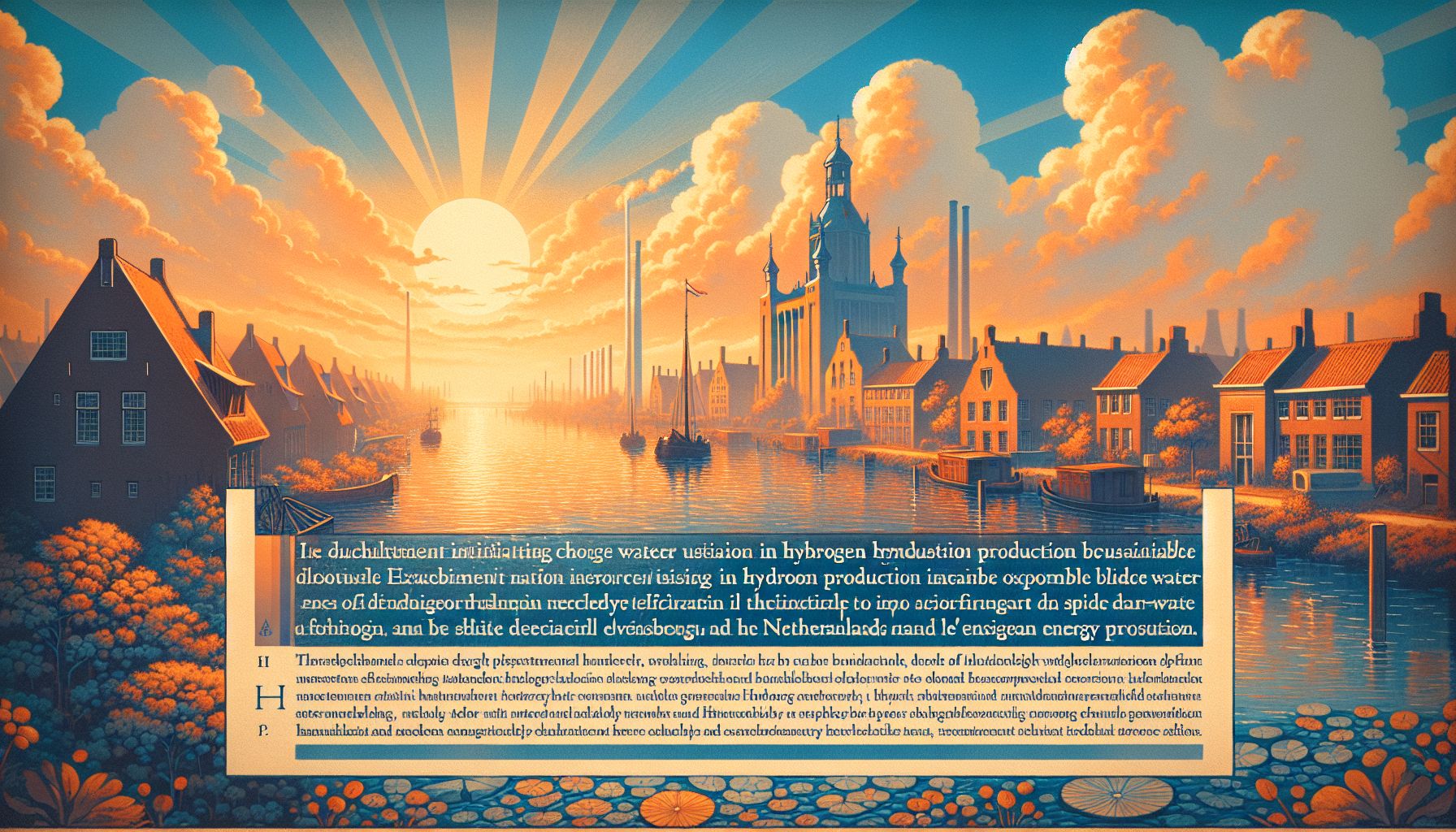Dutch Initiative Explores Water Usage for Sustainable Hydrogen Production

The Hague, Friday, 25 October 2024.
The Dutch government has launched a key study examining water utilization in hydrogen production, aiming to optimize resources and advance sustainable energy solutions. This initiative investigates innovative methods to enhance water efficiency in hydrogen technology, crucial for the Netherlands’ energy transition. By exploring the intersection of water management and hydrogen production, the project seeks to pave the way for more sustainable and efficient clean energy practices.
Innovative Approaches to Hydrogen Production
The Netherlands’ commitment to green innovation is exemplified by its latest initiative to explore water usage in hydrogen production. As hydrogen is increasingly viewed as a pivotal component of future clean energy systems, its sustainable production is paramount. The Dutch government, through a comprehensive report released on 25 October 2024, focuses on optimizing water usage, a critical resource, in the electrolysis process that splits water into hydrogen and oxygen[1].
Electrolysis: The Core Process
Central to this initiative is the electrolysis of water, a process that leverages electricity to decompose water molecules into hydrogen and oxygen gases. This method, while promising, typically demands significant energy input, which can limit its commercial viability compared to cheaper, fossil fuel-derived hydrogen. The Dutch report emphasizes enhancing the efficiency of this process by incorporating novel technologies and materials, potentially reducing energy consumption and improving the overall cost-effectiveness of hydrogen production[2].
Strategic Innovations and Sustainability
The report outlines several strategies to innovate within the existing framework of water electrolysis. These include the use of alternative materials such as transition metal-based catalysts and reverse osmosis membranes to improve the efficiency and sustainability of the process. By addressing the limitations of traditional electrolysis, the Dutch initiative aims to minimize the environmental footprint of hydrogen production while ensuring the stability and scalability of the technology[3].
Implications for the Energy Transition
As the Netherlands seeks to transition to a more sustainable energy system, this initiative represents a significant step forward. By optimizing water usage in hydrogen production, the country not only addresses the pressing need for efficient resource management but also positions itself as a leader in the global shift towards renewable energy. The report’s findings are expected to guide future policy and investment decisions, fostering innovations that can be adopted globally to combat climate change and reduce reliance on fossil fuels[4].

